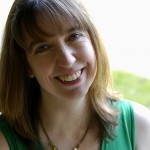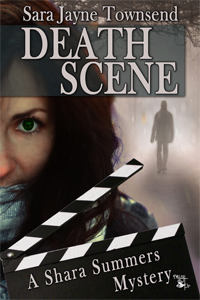I’m excited today to have a fellow crime writer. My guest is Sara-Jayne Townsend whose new crime mystery, Death Scene, is scheduled for release this month.
Here’s a taste of Death Scene:
British-born, Toronto-based, actress Shara Summers turns amateur sleuth when her sister is stricken with a mysterious illness. Summoned back to England to be with her family during a time of crisis, Shara discovers doctors are at a loss as to what’s causing Astrid’s debilitating sickness.
After her aunt is found dead at the bottom of the stairs the death is deemed an accident. Shara suspects otherwise. Her investigation unearths shocking family secrets and a chilling realization that could have far-reaching and tragic consequences that affect not only her own future, but Astrid’s as well.
Ever wonder how authors come up with their stories and their character? Ever wonder what possessed them to start writing? In this interview you’ll learn about Sara-Jayne and her path to becoming a successful published writer.
JC: I’m very excited to have you here today, Sara-Jayne. I know every author has a story to tell about their experiences as writers. Yours is quite interesting and very much mirrors my own.
 Death Scene is the first in an amateur sleuth series. What made you decide to write a series?
Death Scene is the first in an amateur sleuth series. What made you decide to write a series?
SJT: I love reading crime series. I like the way the character changes and develops over the series. If you connect with the character as a reader, picking up the latest book in the series is like visiting an old friend. When I decided I was going to write a crime book, it really had to be a series. I wanted to create a character who could develop over several books
JC: Tell us about your main character, Shara Summers. She’s an actress. What made you settle on an acting career for your sleuth?
SJT: In high school, I loved drama and had ambitions of being an actress. I auditioned for every school play, and also joined a local amateur dramatics group, but I rarely got parts. I generally ended up backstage. I was only ever an average actress, but I am apparently a very good stage manager, being organized to the point of being anal, and just a little bit bossy. Leaving school I briefly entertained the idea of pursuing stage management professionally but my longer-held dream was to be a writer. Faced with the concept of two uncertain careers that were unlikely to earn very much money, I decided it had to be writing, around the day job if I was ever going to get a mortgage.
Instead I decided to live the actor’s life by proxy, by creating an actress amateur sleuth. I also thought an actress might have the confidence and inquisitiveness to start poking about in things that don’t concern her in order to solve mysteries. And I liked the idea of her donning disguises. In every book there will be a scene where Shara puts on a costume and pretends to be someone else in order to investigate the mystery.
JC: That’s a very cool idea. The amateur sleuth has to be believable and sometimes it’s hard to create such a character. Dressing in disguises is unique. Tell us about the other characters we’ll meet in the series.
SJT: A recurring theme in the first book is that your family is always with you, no matter how much to try to run away from them. At the start of the book Shara lives in Toronto. Her parents are divorced and her mother and sister have moved back to England, whereas Shara decides to stay in Canada with her father. She eventually realizes that she’s harboring a lot of issues dealing with a sense of abandonment and she has to come to terms with this. Shara’s mother, sister and little niece are characters I envisage playing supporting roles in future books. Shara’s niece is only 18 months old in the first book, but her age in future novels is a good way of marking the passage of time between books.
JC: I can see you are looking to the future in writing this book. Let’s look back a moment. Tell us about your previous writing. You’re a short story writer, correct? There has to be a lot of difference between writing short stories and novels.
SJT: I’ve been writing stories pretty much since I first learned how to form words on a page, and even before that I was making up stories, using my dolls and teddies as characters. I wrote my first novel when I was 11. I always made up entire life histories about my characters, and all of that would find its way into the story. No doubt that first novel was extremely boring. As I learned more about writing, I learned about being more concise – only the bits that move the story along need to go in.
I started writing short stories as a teenager because I thought there would be a better chance of getting them published, as an unknown writer, than a novel. Most of my short stories are horror stories, and in the late 80s and early 1990s, when I was submitting them, there was quite a big market in the small press for these. I think by nature though I am more a novel writer than a short story writer because I like longer stories.
I think the difference between short stories and novels is that a novel is more like a film, whereas a short story is a snapshot. A moment in time in a character’s life. A character in a short story doesn’t necessarily need a complete life story, and most of mine don’t even have a last name. I find they don’t need as much planning, or as much back story, and they don’t take as long to write. Of course most of my short stories, being horror, tend to finish with a twist, or by shocking the reader, whereas when I write novels I like proper beginnings, middles and endings.
JC: BTW, you can read some of Sara-Jayne’s short stories at http://sarajaynetownsend.weebly.com . You’ve had success by getting your novel published. What advice would you give writers who are trying to get their amateur sleuth mysteries published?
. You’ve had success by getting your novel published. What advice would you give writers who are trying to get their amateur sleuth mysteries published?
SJT:Don’t give up. It’s a very crowded market, and you will pile up a lot of rejections before you get that acceptance. Read a lot, and write a lot. It’s important to get feedback on your work, either by joining a writers’ group, an online writing forum (AbsoluteWrite.com is very good) or even just finding a group of beta readers who are knowledgeable about the genre, and when they give you constructive criticism, make sure you take it on board. But you’ve also got to have faith. We all go through stages when we sit crying over the keyboard because we’re absolutely convinced what we’re writing is complete rubbish. This is part of the writing process. It will pass. Polish until you think the novel is done, and send it out. And when the rejection comes in, send it out again. Rejection never gets any easier, no matter how often it comes, but we all have to learn how to deal with it.
JC: What do you hope readers will say about this debut series?
SJT:I hope they like Shara enough that they want to read more about her. The first two books come out this year, and I’ve got ideas for another half a dozen adventures about her. I’ve just been reluctant to write more books in a series that wasn’t going to sell. If just a handful of people tell me they enjoy reading about Shara and they are looking forward to the next book, that would be enough encouragement to carry on with the next book.
JC: Thank you so much for being here to day. I’ve enjoyed learning about you and about Death Scene. If you want to get your own copy of Death Scene and enjoy the adventures of Shara Summers, go to MuseItUp Publishing. And for those who want to learn more about Sara-Jayne, visit her blog at http://sayssara.wordpress.com.






Thank you for a great interview, Joan and Sara-Jayne. I really liked the way you described the difference between short stories and novels, Sara-Jayne. DEATH SCENE sounds very interesting. I look forward to reading it.